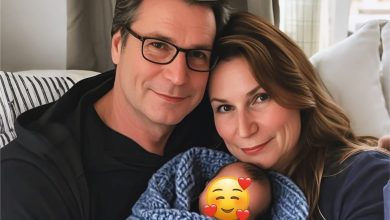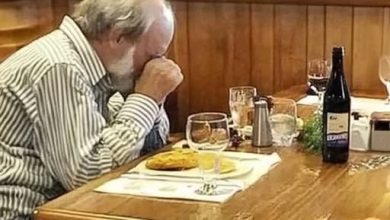At Lyceum No. 6, the cafeteria always smelled like a strange mix of scorched pea soup, stale bread crumbs, and greasy meat patties. Long wooden tables rattled under the weight of food trays, spoons clinked impatiently against glasses, and someone inevitably complained that the compote tasted more sour than usual.
Amid the lunchtime chaos, Anya Zvonaryova kept to herself. While her classmates argued over tricky geometry problems, she quietly ate her cutlet, then wrapped the remaining half in a napkin and tucked it carefully into the corner pocket of her worn backpack. Inside were three slices of bread, a leftover serving of liver soufflé from yesterday, and an apple she’d snuck during the morning break.

Zhenya Kutuzov was the first to notice. He dragged his chair closer, grinning.
“No food at home?” he teased.
Anya sighed, adjusting her glasses. “It’s just my emergency stash,” she replied softly.
“What is this—some survival challenge? Or are you hiding lunch from the nurse?” he laughed.
“Back off, Kutuz,” she muttered.
Across from her, Dasha Lepyokhina raised an eyebrow.
“You should’ve seen her yesterday — pasta sauce all over her backpack.”
Laughter broke out across the table. Anya lowered her eyes. No explanation would matter — this was just how things always went. When the bell rang and thirty students poured out into the hall, she quietly zipped her backpack and slipped out the back door.
Anya’s family lived near the depot, on the edge of town. Two cramped rooms, a tiny six-square-meter kitchen, and thin walls that let in every sound. Her father worked as a mechanic at the rail yard, and her mother did long ambulance shifts as a nurse. Money was always tight, but there were usually potatoes and pickles at home.
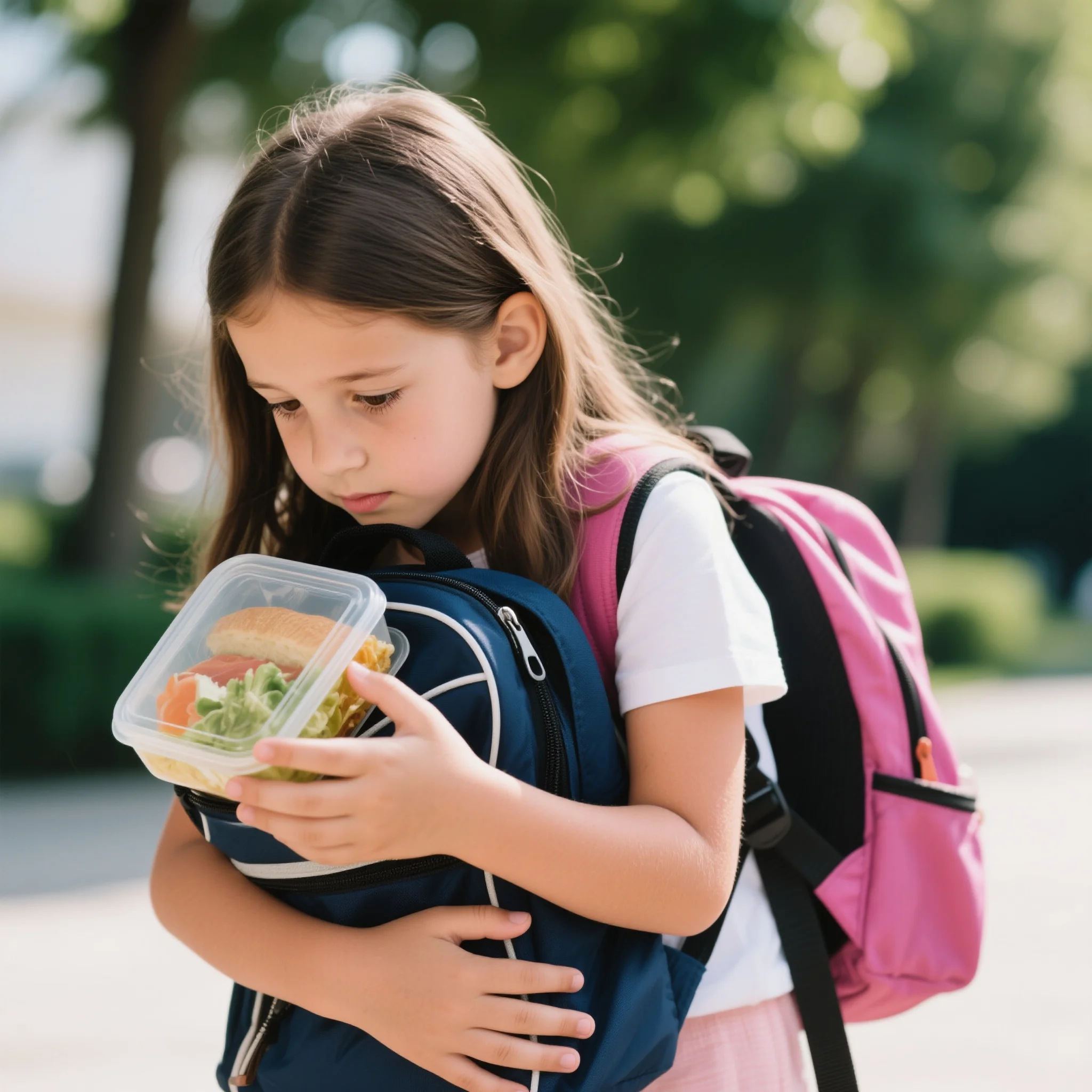
Still, Anya didn’t save the extra food for herself. A week earlier, she’d overheard a neighbor crying in the stairwell — out of coal, a broken leg, no work. Her son, Max, a first-grader with wide, hopeful eyes, was hungry. That evening, Anya brought them her portion of pilaf. Max devoured the stewed carrots like it was a royal banquet.
She knew one meal wouldn’t change their lives. But school leftovers meant she could help — regularly. Every Friday, she brought warm cutlets, bread, and a piece of casserole. Max and his mother, Lyuba Alexeyevna, thanked her quietly, promising to “repay the kindness once her leg healed and the library reopened.” Anya only smiled and said, “It would’ve been thrown out anyway.”
From then on, she packed a small care package each day and discreetly passed it to the family on her walk home.
Rumors started flying around school — some claimed she was hiding food “for a dog,” others said “her mom doesn’t feed her,” and a few whispered she was “selling cutlets at the train station.” Dasha, always eager for drama, fueled the gossip.
During literature class, while their teacher, Olga Nikolaevna, explained the essay assignment, Dasha leaned over and whispered, “Why not just go to social services? They give food to poor families. Why humiliate yourself?”

Anya stayed silent — until she heard the word poor. Then she stood up and said clearly, “Who said I’m poor?”
“Well, who else hides food in their backpack?” Dasha sneered.
The teacher turned, sharply.
“Lepyokhina. Zvonaryova. Board. Now.”
The class fell silent. Dasha smirked.
“She hides cutlets in her backpack. Everyone knows.”
A few students laughed awkwardly.
The teacher sighed. “Anya, is this true?”
“I pack food,” Anya said calmly, though her voice trembled. “But I don’t steal it.”
“Then why?”
“To help someone who has even less than we do.”
The room went still.
“Stay after class,” the teacher said gently.

That evening, under a dim streetlamp, Anya walked the narrow sidewalk with her heavy backpack. Inside were pasta, bread, and a mandarin — a leftover from the holiday treats. She climbed to the third floor and knocked. Max opened the door, eyes lighting up.
“Hi!” he whispered, grinning.
Anya handed over the food. “A mandarin today — a little celebration.”
“Is it sweet?”
“The sweetest,” she smiled.
Behind him, Lyuba Alexeyevna leaned on a mop. “We’re so grateful. The library still hasn’t reopened…”
“It will,” Anya replied. “I have to go now.”
The next morning, Anya was called to the principal’s office. The room smelled of coffee and paper. Principal Dmitry Sergeevich nodded kindly.
“Your teacher explained things. Tell me what’s really happening.”
So Anya did — the broken leg, the lack of income, the boy who was hungry, and all the food that got tossed away each day.
The principal exhaled heavily. “You know you’re not allowed to take food out of the cafeteria?”
“I know,” Anya said. “But it’s better than wasting it.”
Olga Nikolaevna added, “We’d like to make this official. A school food-sharing program — leftovers redistributed to those in need.”
The principal nodded. “I’ll speak to social services. But please, no more doing this in secret. We’ll set it up properly.”
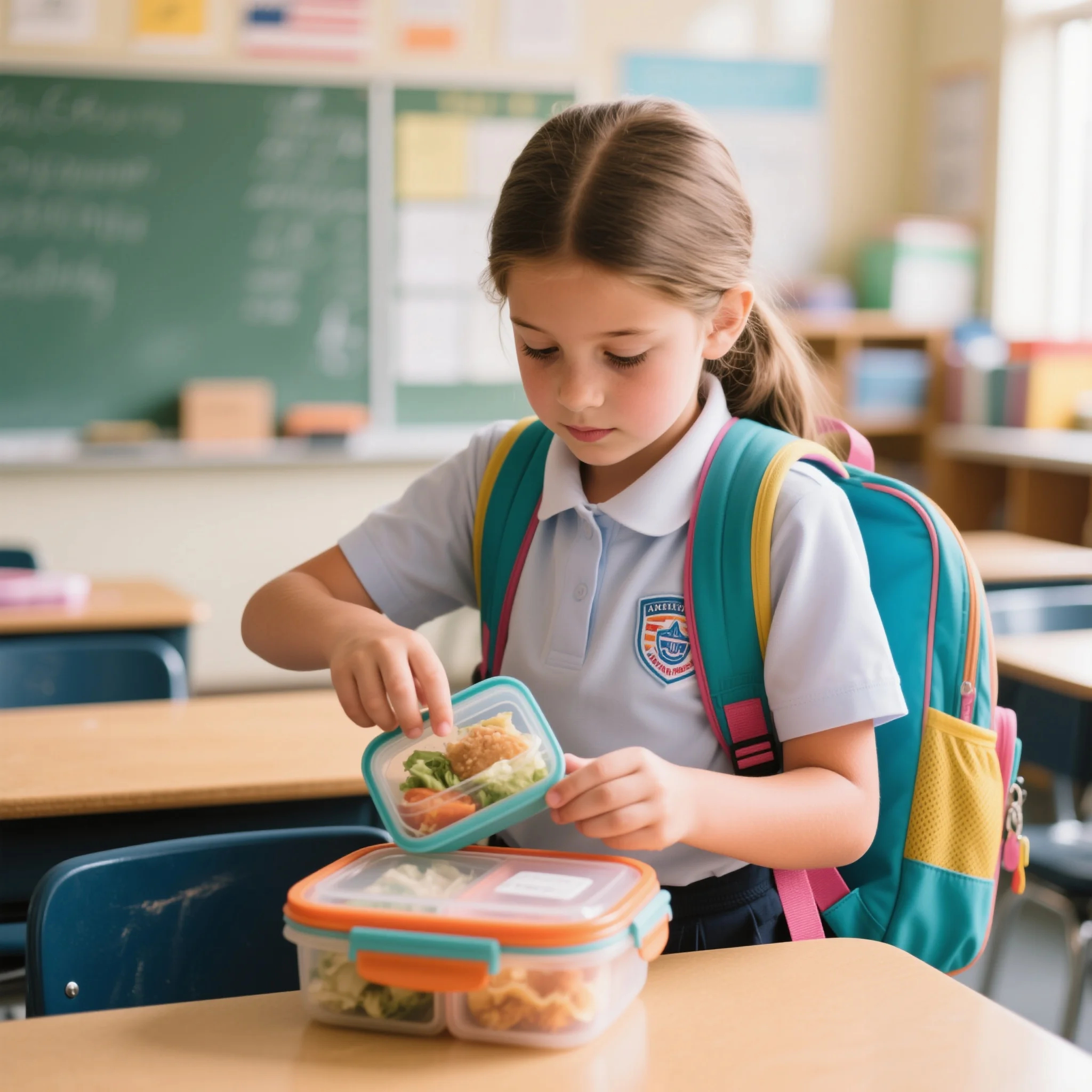
Two days later, an announcement was made:
“Launching the ‘Nothing Goes to Waste’ volunteer program. Leftover school lunches will be packed and delivered to families in need. Coordinator: Zvonaryova A.”
Classmates exchanged surprised looks.
Zhenya approached her. “I’ll help. My uncle’s store has leftover bread.”
Dasha twirled her hair. “My dad has a meat stall. I can bring scraps.”
Anya smiled. “Deal.”
That evening, two boys helped chop firewood for Lyuba. The shop teacher donated notebooks for Max.
By spring, the principal organized a Day of Kind Hearts fair. Homemade pastries, crafts, and jewelry were sold for symbolic prices. All proceeds supported food deliveries and the volunteers. Anya’s mother baked gingerbread shaped like kitten paws — a dream from Anya’s childhood.
Local journalists came. One photo showed Anya handing Max a colorful backpack. In the background, Dasha chatted with Lyuba, Zhenya carried apples, and the principal signed a support check.
The article read:
“What began as one cutlet in a backpack now feeds hearts at Lyceum No. 6.”
Later, flipping through the paper, Dasha admitted, almost in a whisper, “You made us better.”
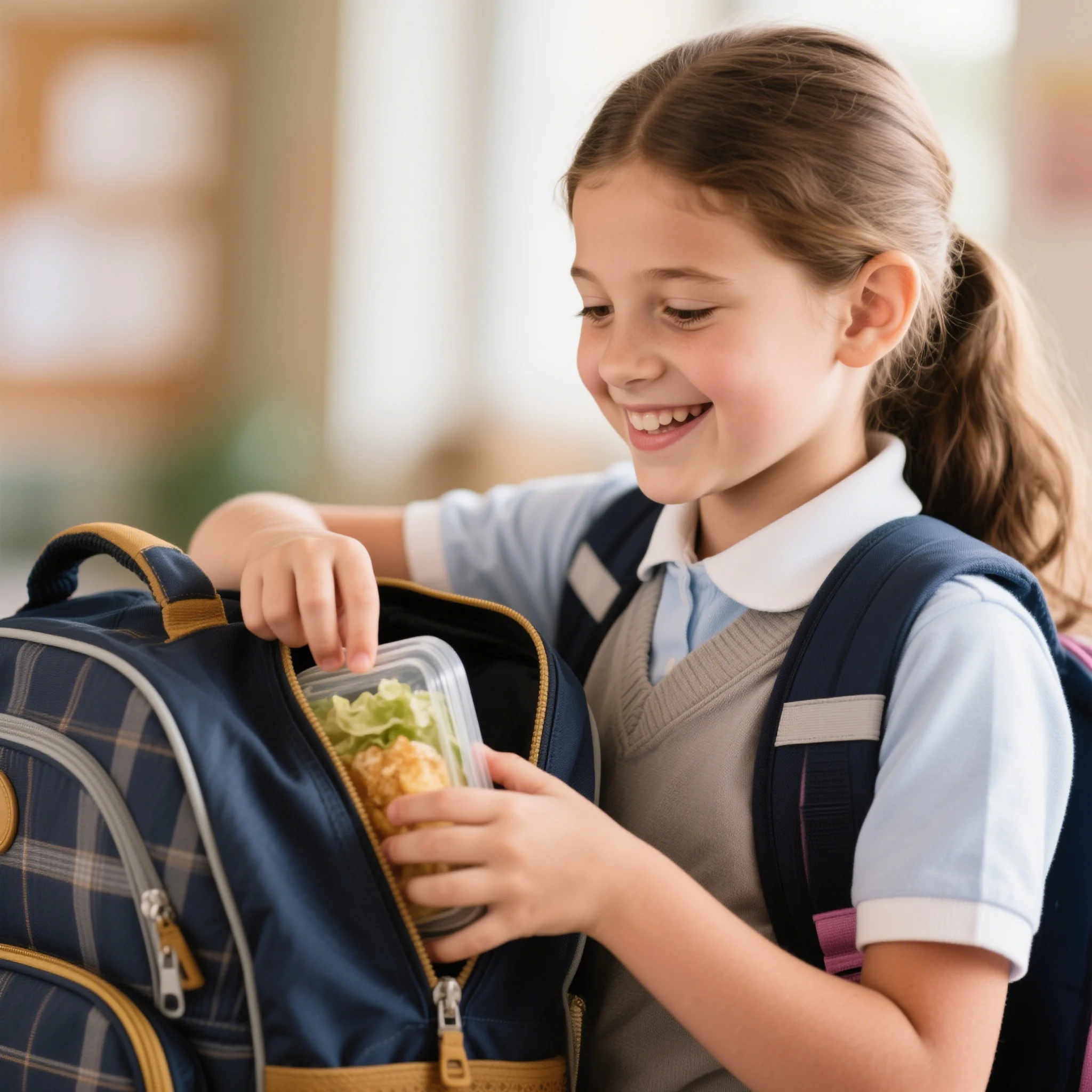
Anya shrugged. “I just didn’t want good food to go to waste.”
“Sometimes, that’s enough,” Dasha said.
Lyuba returned to her job at the library. Max went to summer camp. The food program grew — now helping elderly neighbors and large families.
One day near the cafeteria storeroom, Zhenya said, “Imagine if we’d just asked what you were doing instead of teasing you. This could’ve started way earlier.”
Anya laughed. “The important thing is that it’s happening now.”
By September, a diploma hung by the school entrance:
“Best School Initiative of the Year.”
A new sign read: “Have extra bread? Leave it for the volunteers.” A clear box stood below. No one laughed anymore when Anya added a bag. Everyone took turns.
Most Fridays, Zhenya called out, “Anya, are you on today? Need help with the pasta?”
She’d nod. “Yes. Let Dasha help. We have tons of apples to pack.”
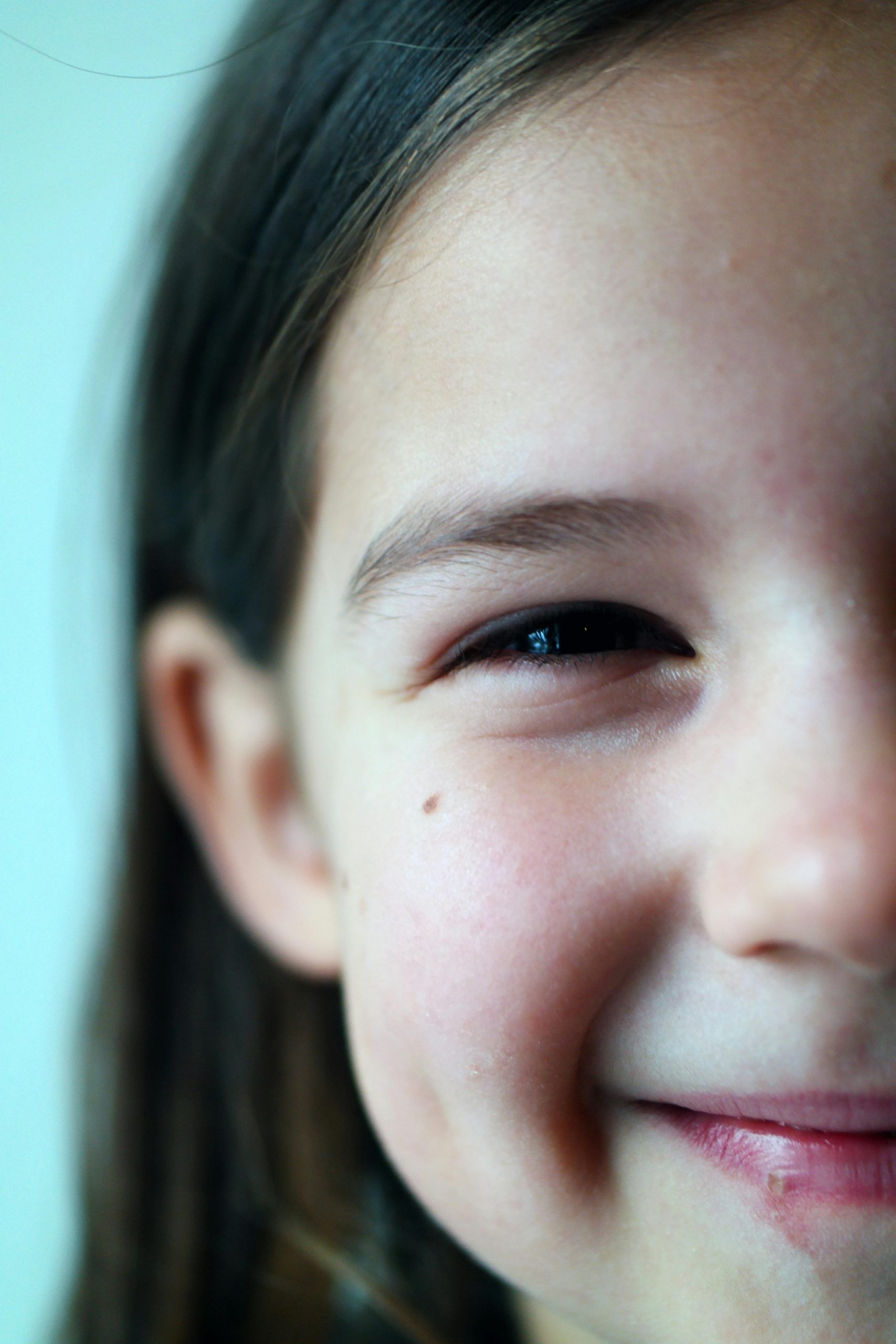
Now, classmates competed for delivery shifts — it was an honor.
Sometimes, Anya remembered that first cruel joke: “No food at home?” And she smiled — because one cutlet had taught thirty teenagers how to share. It gave Max a backpack, her mother a dream fulfilled, and Lyuba a second chance.
Nobody needed to know how it began.
What mattered was that now, when someone had extra, they asked without shame:
“I have extra. Who can I give it to?”
And when the kitchen lights went out at night, the soft rustling of bags no longer smelled like garbage.
It smelled like kindness.


